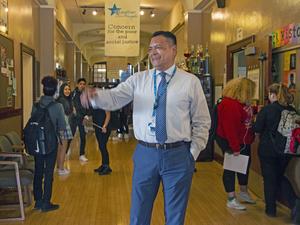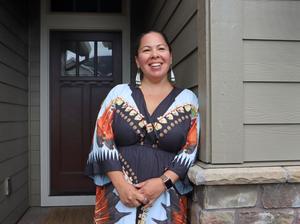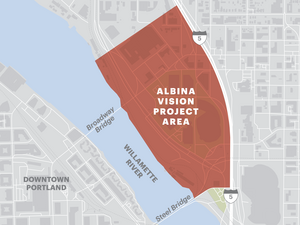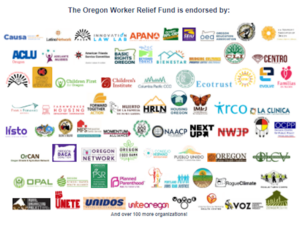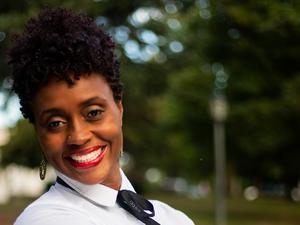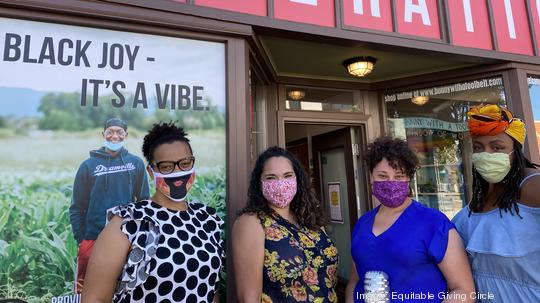
Portland nonprofit Equitable Giving Circle is calling on the region’s business owners and leaders to put money behind promises of standing with their Black, Indigenous and people of color neighbors.
The group has a new campaign that seeks to enlist at least 1,000 new donors at $250 a month.
That no-strings-attached money would fund the group that serves 325 BIPOC families with weekly boxes containing produce and pantry items, and, once a month, some sort of protein. The produce and the protein are purchased from BIPOC-owned farms and butchers.
If the group can generate $250,000 a month through this sort of monthly donation it will sustain the majority of programming and staff, said founder and executive director AJ McCreary.
“We serve Black and brown people but we improve the community and lives for everyone here,” said McCreary, who grew up in Northeast Portland. “We are having people across the color line say, ‘I believe in this work and I want to see my community and my city thrive.”
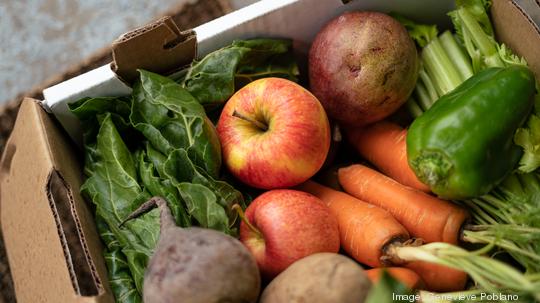
EGC launched with a program to provide food, while also supporting BIPOC-owned farms. It has also branched out into housing assistance and wellness. Since spring 2020 it has served more than 25,000 BIPOC community members. The group’s housing program has served 60 households with monthly mortgage or rent grants.
EGC is funded from private donations of both cash and in-kind products, as well as grants. Last year it received a $350,000 grant from the city of Portland as part of Covid-19 relief funds.
The group has a $1.5 million budget and it estimates that it has contributed $7 million into the local economy as the support ripples through the community.
“We are using the model while we are building it. It’s allowed us to pivot a lot and that has been required in the reality of Covid,” said McCreary.
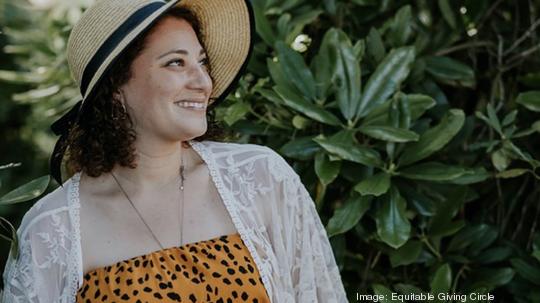
Money isn’t tied to specific programs and it can be directed where it is most needed. For families receiving services there is no deadline to leave. Families let EGC know when they no longer need the support.
“When people are in a better space they send an email that they don’t need it,” she said, adding that usually families will ask that their box go to another family they may know that needs it.
In addition to the food boxes, the group has sent personal protective equipment to families and supplied backpacks and school supplies to more than 500 students. The group has also sent out 1,500 care packages to community members filled with items purchased from BIPOC businesses.
Families come to EGC through connections to the group’s leadership team and founding members as well through connections to existing community organizations such as the Urban League and the Native American Youth and Family Center.
EGC started in late 2019 with a group of BIPOC women interested in starting a giving circle, where they would pool resources and decide where to deploy them. That idea was being explored when the Covid-19 pandemic hit: The group realized it needed to mobilize immediately.
“We’re a group with a lot of moms and business owners, we saw what was about to happen,” McCreary said.
So, they started a program where they would buy produce from Black and brown farmers and created CSA boxes to give for free to BIPOC families in the community. The idea was to create a virtuous cycle that would see farmers get paid and the produce go to local folks who needed it.
“We keep money in the community. If individuals save grocery money and shop at a local business, or pay down debt or go to school, they keep money in the community,” McCreary said. “They have spending power in our community.”
The group is now piloting a walk-in pantry at its office at 2218 N.E. Broadway. Like the boxes, items are free to those who need them. As the program evolves, the group is also actively seeking a larger space to house the headquarters and the pantry.
EGC has a team of four directors: McCreary; Deoshia Hopkins, CSA director; Lillian Green, housing director; and Dyvisha Gordon, outreach director. There are also a handful of drivers on staff to make deliveries.
McCreary, whose background is in business development and marketing, wants to see ECG create a blueprint of community work and care that can be taken to other cities.
“Portland is a classroom, we are all learning together,” she said. “I think Portland wants to see change.”
